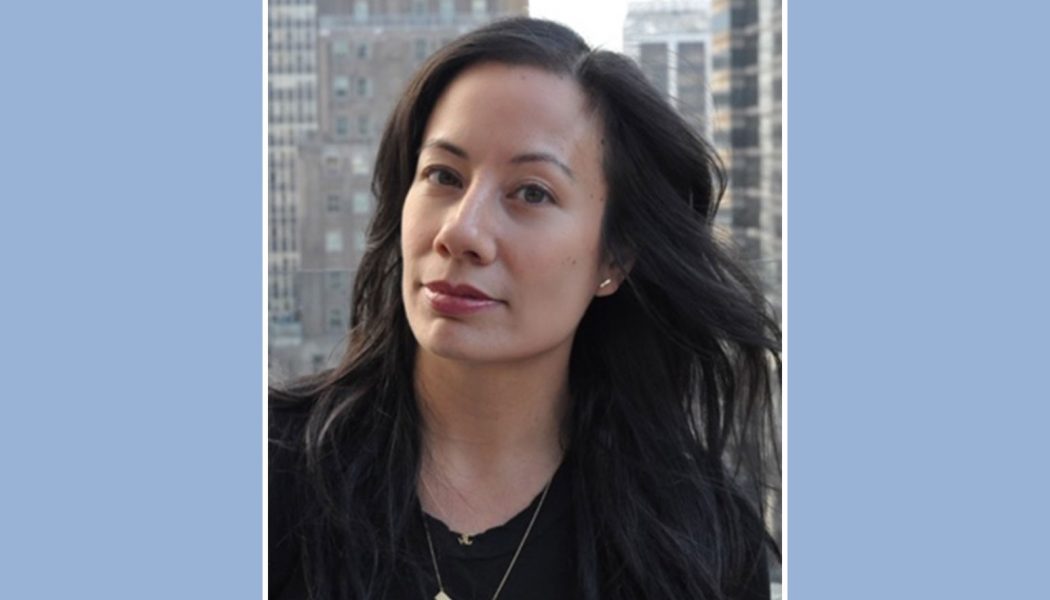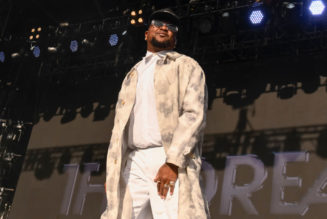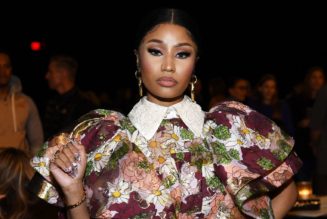
The Billboard 2020 Women in Music top executive found herself and the rest of UTOPIAA switching gears to address the AAPI community’s needs. One way they sought to accomplish this was by organizing an AAPI Anti-Violence Town Hall to address the increased hate crimes and violence. The town hall, which was scheduled on March 17 after weeks of planning, happened to come just one day after three shootings in Atlanta-based spas killed eight people, six of whom were Asian American women.
“We literally had [the town hall] scheduled for weeks, and then Tuesday happened, and we were in shock,” Pizarro tells Billboard. “The way that Universal stepped up was like, ‘OK, what do you guys need right now?’ And it was crazy that we had that planned anyway. So it turned into obviously addressing Atlanta, addressing healing, but the original plan was to just talk about violence anyway. It was shocking that that happened, and amazing too, because we held the space for everyone right after, and it felt like we were there for the company. … We just wanted to open up the conversation. And then it became also a little bit of a healing session.”
She notes that originally 150 people had RSVPed to the town hall that was meant to open the conversation about the increased violence toward Asian Americans during the pandemic. But 450 people eventually attended that day, joined by Stop AAPI Hate’s co-founder and co-executive director of CAA Cynthia Choi, Little Tokyo Service Center‘s director of community building and engagement Grant Sunoo, and Asian American Collective‘s music industry veteran co-founders Zeena Koda (head of brand digital at The North Face), Grace Lee (head of artist relations, East Coast at YouTube) and Caroline Yim (co-head of hip-hop/R&B and music agent at WME).
“I loved the context of having them talk about allyship, and like we said, we’re all in this together. And I think that was a big message throughout the conversations,” Pizarro says. “You can change your inner circle and it makes a difference. You can change how your parents talk, you can change your friends. It doesn’t have to be this massive donation and millions and millions of dollars from a corporation. It could be just as small as me talking to my dad and being like, ‘This is what’s happening.’ It just made things very accessible. … The other thing that I loved about the town hall was the accountability and that realness in the convo. People were bringing up a lot of real sh–. Like, ‘Hey, my dad needs a real lesson.’ And I think a lot of us were even opening up to that, and that’s real. That’s hard to do.”
LA-based Filipino artist Kajo, who’s signed to Def Jam in partnership with Logic‘s BobbyBoy Records, attended Universal’s town hall. He later told Pizarro that he “learned so much” from the conversation, especially about how to be more vocal within the creative community.
“It’s just so humbling and relatable to hear like, ‘Oh, this artist doesn’t know either? OK, let’s work it out together.’ We hold our artists to such high standards,” she explains, adding how it helped “just to hear that they’re also going through the sh– we’re going through.”
While trying to process the constant violence ravaging the AAPI community, Pizarro found herself switching from listening to one of her favorite artists, Drake, to Ruby Ibarra, a Filipino-American rapper whose “comforting” and “powerful” lyrics in Tagalog, Waray and English focus on her cultural heritage and immigrant experiences. “We have this whole continent of music out of Asia, and they’re killing it. But a lot of it doesn’t travel here, just either language or messaging,” Pizarro elaborates. “So we don’t have as many voices in American music, but when they do, they really resonate with us. There’s so few Asian American artists. The K-pop stuff of the world … it’s just a different story over there. It’s very specific to us.”
BTS, one of the biggest musical acts in the world, condemned the recent wave of anti-Asian hate crimes sweeping the United States. The K-pop supergroup opened up about moments when they “faced discrimination as Asians” but centered their statement on “the events that have occurred over the past few weeks.” Japanese-British singer Rina Sawayama wrote on Twitter that “A CRIME AGAINST ANY COMMUNITY IS A CRIME AGAINST US ALL” and has shared multiple links on how to support the families of Atlanta’s shooting victims. Despite the disparate experiences of global acts of Asian descent, these recent acts of violence have brought them together from all corners of the world so they can stand with each other in solidarity. And Pizarro thinks it’s time for record labels to join them.
“All of our stories are so valuable, especially when it comes to something like music, where it’s culture. The record labels have even more of a responsibility to reflect all of us,” Pizarro says. “We spend most of our time at work. This is our family, so to speak, most of the day. I think our stories, all of our stories, are really unique and exciting and bring something to the company.”
Universal wanted its ERGs to hop on a call and unpack better ways to serve minority communities, but those groups plan to take their cultural collaborations a step further. Pizarro mentions that PRISM, the ERG for LGBTQ+ members of Universal, pitched a drag fundraiser with Asian drag queens in partnership with UTOPIAA. “I was like, ‘This is f—ing genius,'” Pizarro recalls, adding that the next steps should involve all of UMG’s ERGs collaborating on cool ways to “solve the same problem.”
“I think now the programming turned from how to roll dumplings to how to be an ally. So I think that’s the next step. It’s just having real conversations, and that’s on us to do,” she says. “We don’t need to do an origami class. We need to have another town hall on Asian support of the Black community in the past. Those types of real things are the next steps.”









